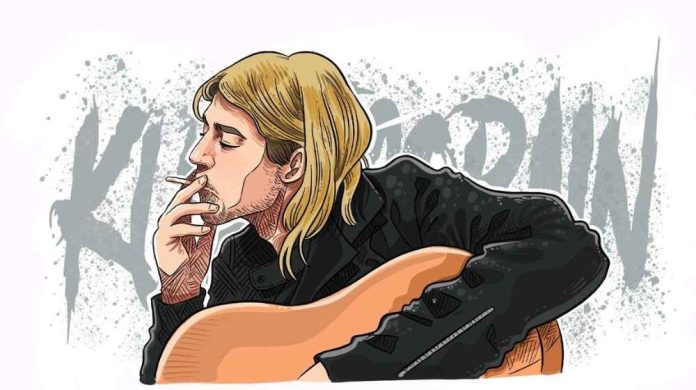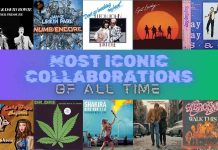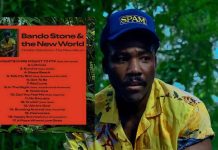Kurt Cobain’s influence on the world of music is undeniable. As the lead singer and guitarist for Nirvana, his raw, authentic sound helped define the grunge movement and resonated with a generation grappling with existential angst. But what if Kurt Cobain had survived his struggles? How might his career, music, and cultural influence have evolved?
Musical Evolution: From Grunge to Experimental Sounds
Cobain was known for his innovative approach to music, blending punk rock with emotional depth. In a world where he survived past 1994, Cobain’s sound would likely have evolved significantly. While grunge might have remained part of his identity, Cobain had already begun to show interest in more experimental styles and acoustic elements. The MTV Unplugged session in 1993 hinted at his versatility, demonstrating a capacity to strip down his sound and focus on melody and vulnerability.
As the 2000s approached, Cobain could have delved deeper into alternative rock, perhaps exploring collaborations with electronic or avant-garde artists like Björk or Radiohead, who were similarly pushing boundaries at the time. His love for bands like The Pixies suggests that he might have leaned into a more melodic, layered approach to music, possibly creating a fusion of grunge, indie rock, and more experimental soundscapes.
Collaborations: Who Would Have Worked With Kurt Cobain?
Cobain was vocal about his musical inspirations, from punk bands like the Sex Pistols to more avant-garde artists like Daniel Johnston. Given this eclectic taste, collaborations with artists from a variety of genres could have been on the horizon. Imagine a partnership with Thom Yorke of Radiohead, blending Yorke’s atmospheric electronic influences with Cobain’s raw intensity. Or consider Cobain working with St. Vincent (Annie Clark), who shares his love for heavy guitars and experimental sounds.
As Cobain’s music matured, he might have also found common ground with artists like Beck, whose genre-blending style would have matched well with Cobain’s growing interest in different sounds. Additionally, Cobain’s early admiration for hip-hop could have led to groundbreaking cross-genre collaborations, similar to how Run-DMC teamed up with Aerosmith in the 1980s. His curiosity about other genres might have opened the door for working with artists like Kanye West or Childish Gambino in later years, embracing both innovation and cultural commentary.
Societal Issues and Cultural Influence: The Champion of the Outsiders
Cobain was not only a musician but also a cultural figure who often challenged societal norms. He was a fierce advocate for LGBTQ+ rights, gender equality, and the importance of mental health. Had he survived, Cobain would likely have continued to use his platform to speak out on issues that mattered to him, becoming a more prominent voice for marginalized communities.
In today’s social landscape, where mental health, gender fluidity, and racial equality dominate the conversation, Cobain’s voice would be more relevant than ever. His openness about depression and substance abuse would align him with the likes of Billie Eilish and Lizzo, artists who use their platform to advocate for self-acceptance and mental health awareness. Cobain’s influence could have extended beyond music into activism, perhaps supporting movements like #MeToo or Black Lives Matter, given his vocal opposition to toxic masculinity and his support for women’s rights.
Cultural Legacy: Reinventing Nirvana
While Nirvana’s legacy remains iconic, Cobain’s continued presence might have allowed the band to redefine itself or create new side projects. Dave Grohl, who went on to lead the Foo Fighters, might have remained as the drummer for Nirvana, allowing the group to continue pushing the boundaries of rock. However, Cobain’s restless spirit and desire for creative freedom suggest he may have eventually moved toward solo work, much like Paul McCartney’s post-Beatles.
Cobain might have embraced the rise of digital music in the early 2000s, possibly using platforms like MySpace, and later Spotify, to release experimental projects independently. This would have allowed him to avoid major label pressures, something he expressed frustration with during his lifetime. His keen sense of authenticity would have resonated well in the age of indie music and DIY culture, possibly mentoring or supporting a new generation of musicians.
Conclusion: An Unfinished Journey
In a world where Kurt Cobain lived, his influence would have undoubtedly continued to reshape the landscape of modern music. From pushing the boundaries of genre to speaking out on crucial societal issues, his voice would have remained relevant and influential. Whether through groundbreaking collaborations or evolving his sound in new directions, Cobain would have been a constant reminder of the power of music to transcend time, culture, and circumstance.
Music Industry Weekly recognizes that Cobain’s tragic death in 1994 left behind a legacy of what could have been. Yet, his impact remains etched in music history, and in this imagined reality, he would have continued to be a guiding force for creativity, rebellion, and the pursuit of truth in art.








